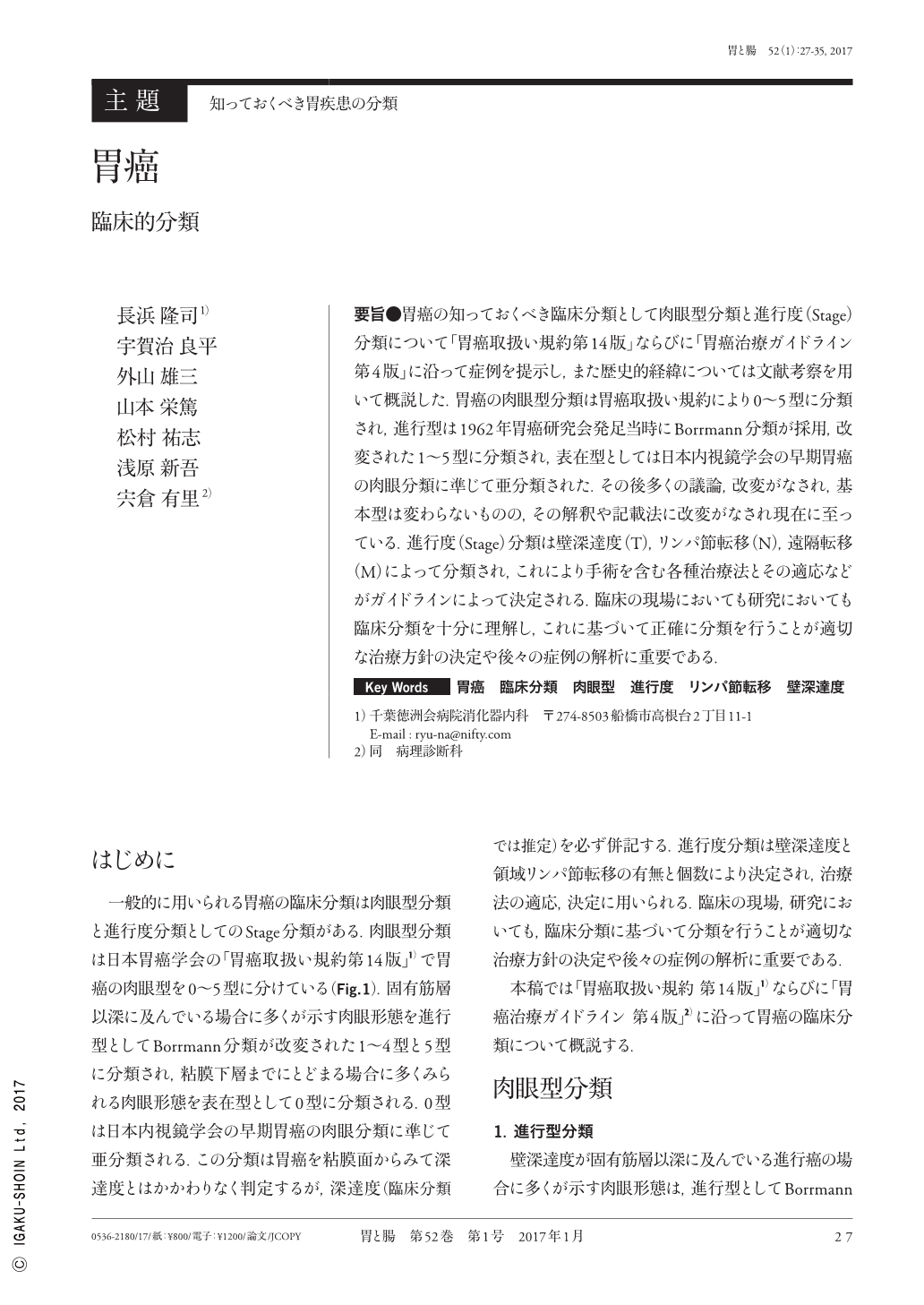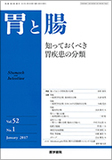Japanese
English
- 有料閲覧
- Abstract 文献概要
- 1ページ目 Look Inside
- 参考文献 Reference
要旨●胃癌の知っておくべき臨床分類として肉眼型分類と進行度(Stage)分類について「胃癌取扱い規約第14版」ならびに「胃癌治療ガイドライン第4版」に沿って症例を提示し,また歴史的経緯については文献考察を用いて概説した.胃癌の肉眼型分類は胃癌取扱い規約により0〜5型に分類され,進行型は1962年胃癌研究会発足当時にBorrmann分類が採用,改変された1〜5型に分類され,表在型としては日本内視鏡学会の早期胃癌の肉眼分類に準じて亜分類された.その後多くの議論,改変がなされ,基本型は変わらないものの,その解釈や記載法に改変がなされ現在に至っている.進行度(Stage)分類は壁深達度(T),リンパ節転移(N),遠隔転移(M)によって分類され,これにより手術を含む各種治療法とその適応などがガイドラインによって決定される.臨床の現場においても研究においても臨床分類を十分に理解し,これに基づいて正確に分類を行うことが適切な治療方針の決定や後々の症例の解析に重要である.
Determination of macroscopic type and stage grouping are the clinical classifications imperative for the diagnosis of gastric cancer. Here, we report case presentations in accordance with these classifications described in the Japanese Classification of Gastric Carcinoma:The 14th Edition(JCGC14)and Gastric Cancer Treatment Guidelines(Ver. 4). The study background was also reviewed from previous literature.
On the basis of the macroscopic types, gastric cancer is classified into six categories namely type 1-5 and type 0 as defined by the JCGC14. Based on the modified Borrmann's classification, the gross appearance of advanced gastric cancers was categorized into type 1-5. This classification was introduced at the time when the Japanese Research Society for Gastric Cancer(the predecessor of the Japanese Gastric Cancer Association)was founded in 1962. Type 0, frequently observed as a superficial tumor, is subdivided according to JCGC14, which was modified from the Japanese Endoscopy Society Classification of 1962. From then on, interpretation and description of the classification have been significantly revised, whereas its fundamental philosophy remains unchanged.
Stage grouping of gastric cancer is recorded by measuring the depth of tumor invasion, lymph node metastasis, and distant metastasis. After conclusive assessment of macroscopic types and stage grouping, strategy and adaptation of a variety of clinical treatments including surgery can be determined according to the clinical guidelines published by medical societies. Therefore, a better understanding of the clinical classification of gastric cancer is pivotal in the fields of clinical practice and medical research because an appropriate decision regarding the course of treatment and case analysis thereafter greatly depends on appropriate classification.

Copyright © 2017, Igaku-Shoin Ltd. All rights reserved.


